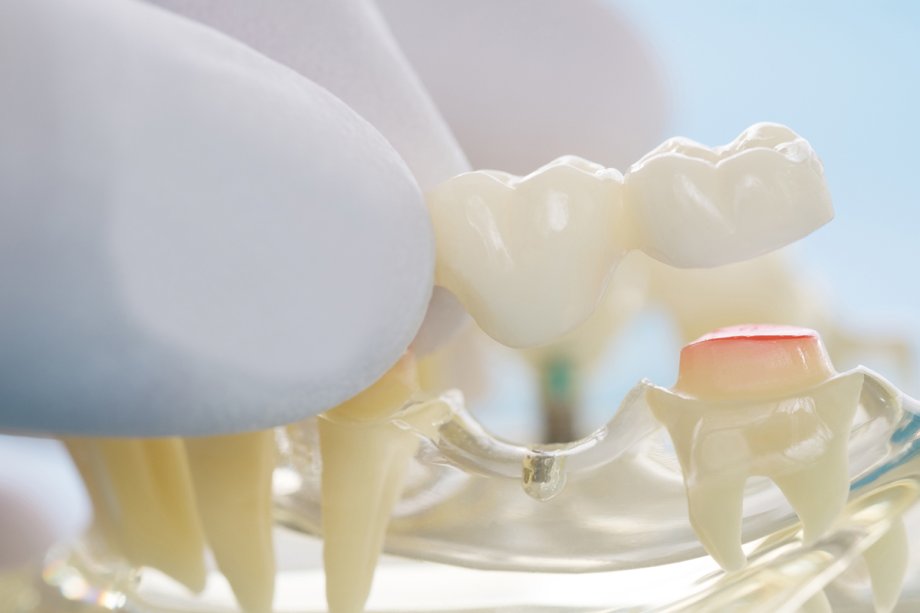If you have any of the following conditions or issues, you should consider a dental bridge.
- Missing teeth: Dental bridges are often used to replace one or more missing teeth. This can be due to injury, decay, gum disease, or other dental issues.
- Difficulty chewing: Missing teeth or gaps in the mouth can make it difficult to chew food properly, which can lead to digestive problems.
- Speech issues: Missing teeth can also affect speech, causing difficulty with pronunciation and enunciation.
- Aesthetics: Missing teeth or gaps in the mouth can also affect the appearance of the smile, which can impact a person's self-confidence and overall quality of life.
- Preventing tooth shifting: When a tooth is missing, the surrounding teeth can shift out of place, causing bite problems and other dental issues. A dental bridge can help prevent this from happening.
Now that you’re familiar with why patients get a dental bridge, it’s time to dive deeper into the purpose of bridges and how long they will last.
The Purpose of Dental Bridges
Dental bridges are used to replace one or more missing teeth. A dental bridge consists of one or more artificial teeth, known as pontics, which are anchored in place by attaching them to the adjacent natural teeth, known as abutments. Dental bridges are typically used when a patient has one or more missing teeth but still has some remaining natural teeth.
The purpose of a dental bridge is to restore the function and appearance of the patient's teeth and to prevent the remaining natural teeth from shifting out of position. Dental bridges can improve a patient's ability to bite and chew, as well as improve their speech and facial appearance. In addition, dental bridges can help distribute the forces of the bite more evenly across the remaining teeth, reducing the risk of future dental problems such as tooth decay, gum disease, and jaw joint disorders.
The Lifespan of Dental Bridges
The lifespan of a dental bridge varies depending on a number of factors, including the quality of the materials used, the patient's oral hygiene practices, and the amount of wear and tear the bridge is subjected to.
On average, dental bridges can last anywhere from 5 to 15 years or more, the average being 5 to 7 years. However, with proper care and maintenance, some bridges can last as long as 20 years or more. Regular dental check-ups and cleanings, as well as good oral hygiene practices such as brushing and flossing regularly, can help to prolong the lifespan of a dental bridge.
It's important to note that the abutment teeth that support the dental bridge can also be affected by decay and gum disease over time. If the abutment teeth become compromised, the bridge may need to be replaced or removed. In addition, changes in the patient's oral health or structure, such as shifting teeth or jaw bone resorption, can also impact the lifespan of a dental bridge.
How To Expand the Life of a Dental Bridge
Maintain good oral hygiene: Brush your teeth twice a day and floss regularly to prevent plaque and bacteria buildup around the bridge and the supporting teeth.
Avoid hard or sticky foods: Chewing on hard or sticky foods can damage the bridge or the supporting teeth. Avoid foods that are too hard or too sticky, such as hard candy, popcorn, and chewing gum.
Wear a mouthguard: If you engage in sports or other physical activities, wear a mouthguard to protect your dental bridge from damage due to impact or trauma.
Quit smoking: Smoking can increase the risk of gum disease and decay, which can affect the supporting teeth of the dental bridge.
Schedule regular dental checkups: Visit your dentist regularly for checkups and cleanings to detect any problems with the bridge or the supporting teeth early and to prevent further damage.
Maintain a healthy diet: A diet rich in calcium and other essential nutrients can help to maintain the strength and health of your teeth and gums, which can, in turn, prolong the life of your dental bridge.
Follow your dentist's instructions: If your dentist recommends any specific care instructions or modifications to your oral hygiene routine, be sure to follow them closely to ensure the longevity of your dental bridge.
Dental Bridges in Forty Fort
When you’re ready to rebuild your smile, a dental bridge can help.
Dental bridges help to restore the function, appearance, and health of the teeth and gums, and help patients to maintain a healthy and attractive smile. They are a popular and effective option for addressing missing teeth and can provide a range of benefits for patients of all ages.
Dr. Todd Paczewski provides dental bridge services in Forty Fort, PA. Contact us at 570-287-2500 to learn more and schedule your appointment.
